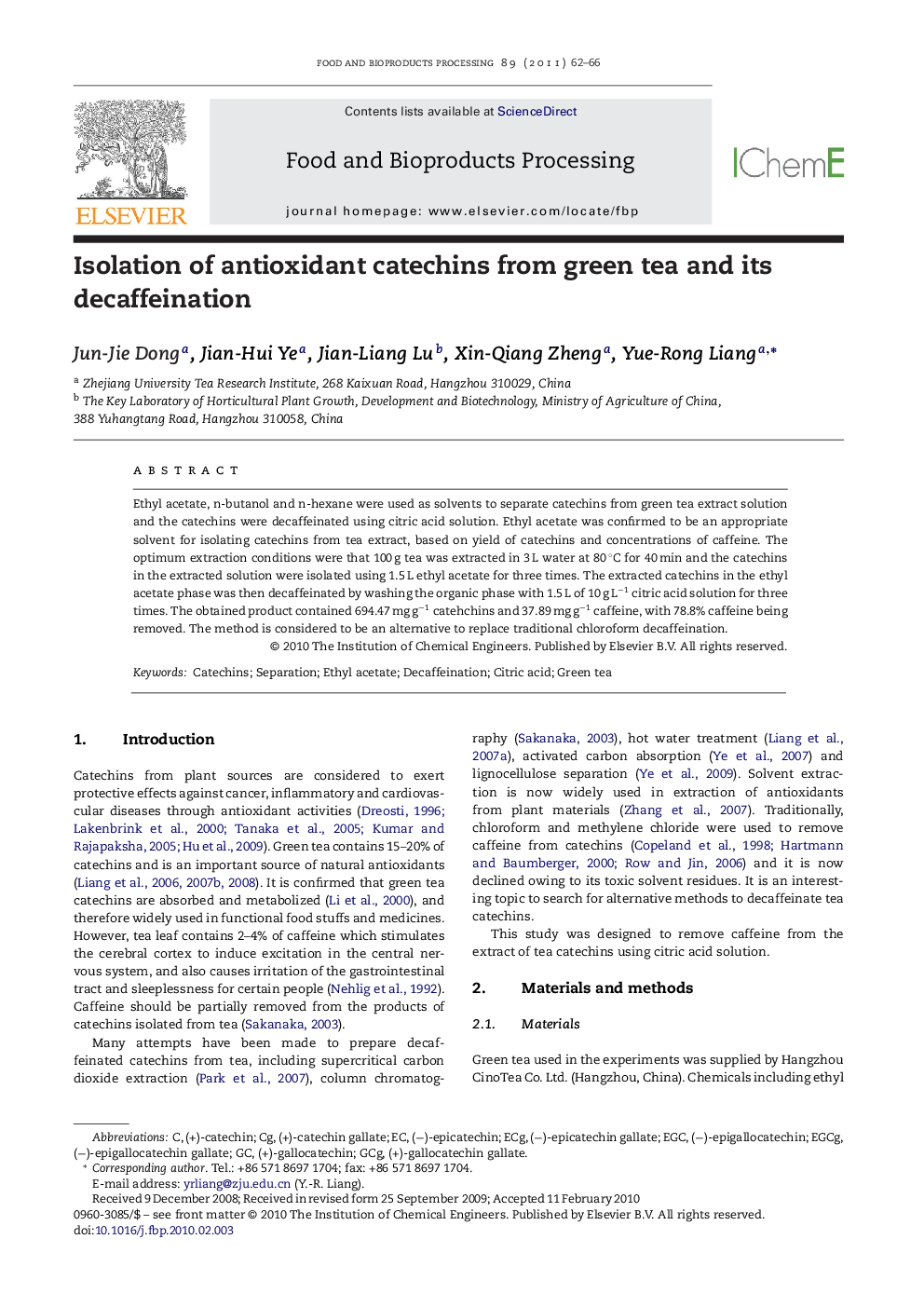| Article ID | Journal | Published Year | Pages | File Type |
|---|---|---|---|---|
| 19234 | Food and Bioproducts Processing | 2011 | 5 Pages |
Ethyl acetate, n-butanol and n-hexane were used as solvents to separate catechins from green tea extract solution and the catechins were decaffeinated using citric acid solution. Ethyl acetate was confirmed to be an appropriate solvent for isolating catechins from tea extract, based on yield of catechins and concentrations of caffeine. The optimum extraction conditions were that 100 g tea was extracted in 3 L water at 80 °C for 40 min and the catechins in the extracted solution were isolated using 1.5 L ethyl acetate for three times. The extracted catechins in the ethyl acetate phase was then decaffeinated by washing the organic phase with 1.5 L of 10 g L−1 citric acid solution for three times. The obtained product contained 694.47 mg g−1 catehchins and 37.89 mg g−1 caffeine, with 78.8% caffeine being removed. The method is considered to be an alternative to replace traditional chloroform decaffeination.
